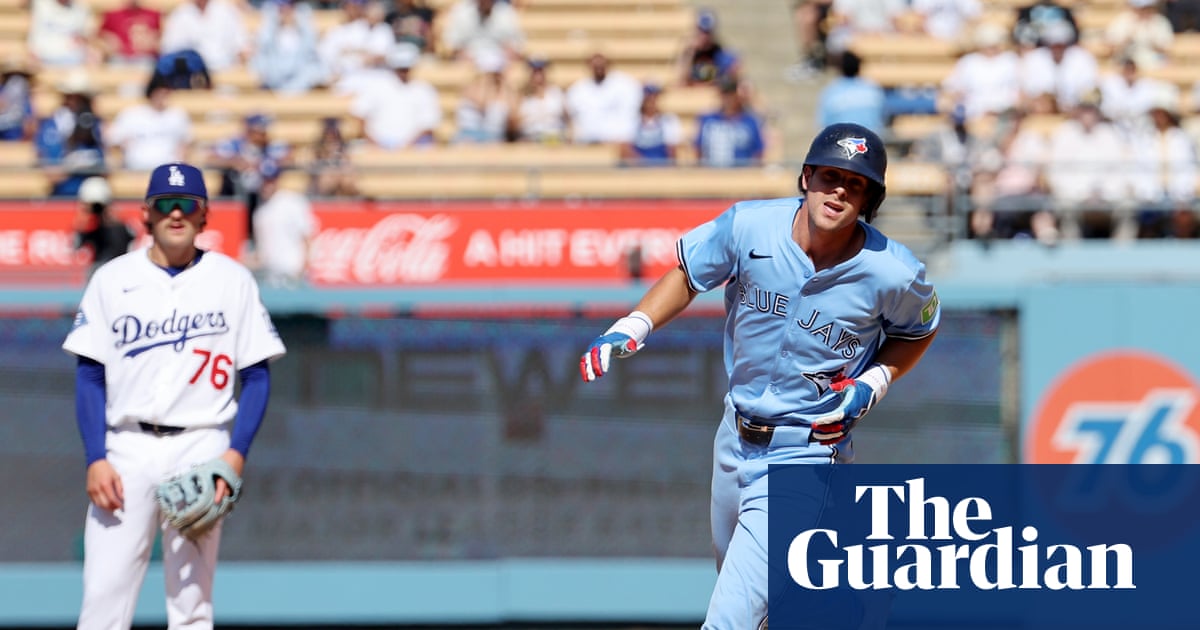War, argued the 19th-century Prussian military theorist Carl von Clausewitz, is “the continuation of politics by other means”.
And as Canada’s largest city braces for a pivotal baseball showdown against a powerful, superstar-laden and well-funded American counterpart, there is a growing sense across the country that, the same can be said for sports.
Over the last year, Canada has been locked in a diplomatic and economic standoff with its longtime ally, biggest trading partner and, increasingly, its largest foe. On Friday, the country’s lone major league baseball team, the Toronto Blue Jays, will face off against the Los Angeles Dodgers in a confrontation Canadians see as both an assertion of its growing dominance in baseball and a statement of national pride.
Over the past year, international sports have taken on a new meaning in Canada after Donald Trump threatened to annex the country and transform it into the US’s “51st state”.
At the height of Trump’s provocations, Canada defeated the US at the Four Nations ice hockey tournament, when fans booed each other’s national anthem in a departure in decorum that underscored the rawness of the mood.
After Canada emerged victorious in an overtime win, former prime minister Justin Trudeau captured the nation’s mood in a social media post: “You can’t take our country – and you can’t take our game.”
Friday’s match, played in Toronto, comes after the Blue Jays dispatched the New York Yankees and Seattle Mariners to reach the World Series. It also marks the first high-stakes professional sports final for the two countries since last year’s hockey matchup.
Bilateral tensions have eased in recent months as the prime minister, Mark Carney, seeks to strike a trade deal with his unpredictable counterpart, but many ordinary Canadians are still maintaining their boycotts of the US and US products.
Donald Trump and Mark Carney. Photograph: Suzanne Plunkett/Reuters
When Carney was in the Oval Office this month, Trump was asked about a sharp decline in cross-border visits to the US, answering: “The people of Canada, they will love us again.”
Carney took the opportunity to brag about the ascendent Blue Jays, warning the president: “We’re coming down for the World Series, Mr President.”
Earlier this week, Carney told reporters he was “super pumped” about the Blue Jays after their dramatic and statistically unlikely win over the Seattle Mariners – a victory that sent the team to the World Series for the first time in more than three decades.
The game, sealed with a home run, ended in what many consider one of the greatest moments in franchise history and has since spawned viral clips, including one that combines Canadian singer Celine Dion’s My Heart Will Go On with the crowd’s elated reaction to a home run.
Touring batting practice on the eve of the first game, Carney said Trump was “afraid” to place a bet on the series.
“He doesn’t like to lose. He hasn’t called. He hasn’t returned my call yet on the bet so I’m ready. We’re ready to make a bet with the US.”
Unlike ice hockey, where there six professional Canadian teams, the Blue Jays are the only team in major league baseball that have a fanbase spanning an entire country.
And despite the immense popularity of baseball in the United States the Blue Jays’ miraculous postseason run reflects the often-forgotten deep Canadian roots of the sport.
Some of the first professional teams were in southern Ontario. Babe Ruth, the legendary slugger, hit his first-ever home run while in Toronto. Jackie Robinson broke the colour barrier playing for a Montreal team before he joined the Brooklyn Dodgers.
“Hockey binds Canadians together, but so does baseball. Canada is absolutely fundamentally instrumental in what is today Major League Baseball. We’ve been helping shape this sport. In many ways. we’re the co-authors,” said Liam Mooney, whose “Canada is Not For Sale” hats became a viral trend earlier in the year. “Maybe we’re too humble about what we’ve contributed. But we shouldn’t shy away from taking credit for what we’ve helped create.”
Mooney, who runs a design firm in Ottawa with his fiancee, Emma Cochrane, developed the hats both as a rebuttal to the red “Make America Great Again” headgear worn and sold by Donald Trump and as “small act of patriotism to respond to these big threats and this big bluster”.
Mooney’s hats became popular throughout the country, cutting across political and geographic lines, a feat perhaps shared only by the Blue Jays. In Canada, a popular pastime for non-Torontonians is mocking the country’s largest city. But its baseball team is granted a rare exception, with the team’s logo a common sight across the nation.
“The Blue Jays brought the country together before, more than any other team,” he said, adding they have a perfect record at the World Series after winning both their 1992 and 1993 appearances. “They’ve created stories and memories in people’s lives. And they’re going to do it again.”
American media have framed the Jays as the underdogs in the best-of-seven series, though some have suggested the battle is “Goliath versus Goliath”. The Dodgers have spent piles of cash to sign big-name players. Their USD$509.5m, including taxes, is double the Blue Jays’ $252.7m and reflects the economic disparity between the two countries.
Friday’s opening game marks the 23rd time the Dodgers have appeared in the world series of baseball. But for Canada’s team, the belated appearance runs deeper.
“We’re a hockey nation. We’re a lacrosse nation. But baseball has been fundamental to the Canadian experience,” said Mooney. “And if it’s ‘America’s pastime’? Well, this year we’re definitely coming for it.”
